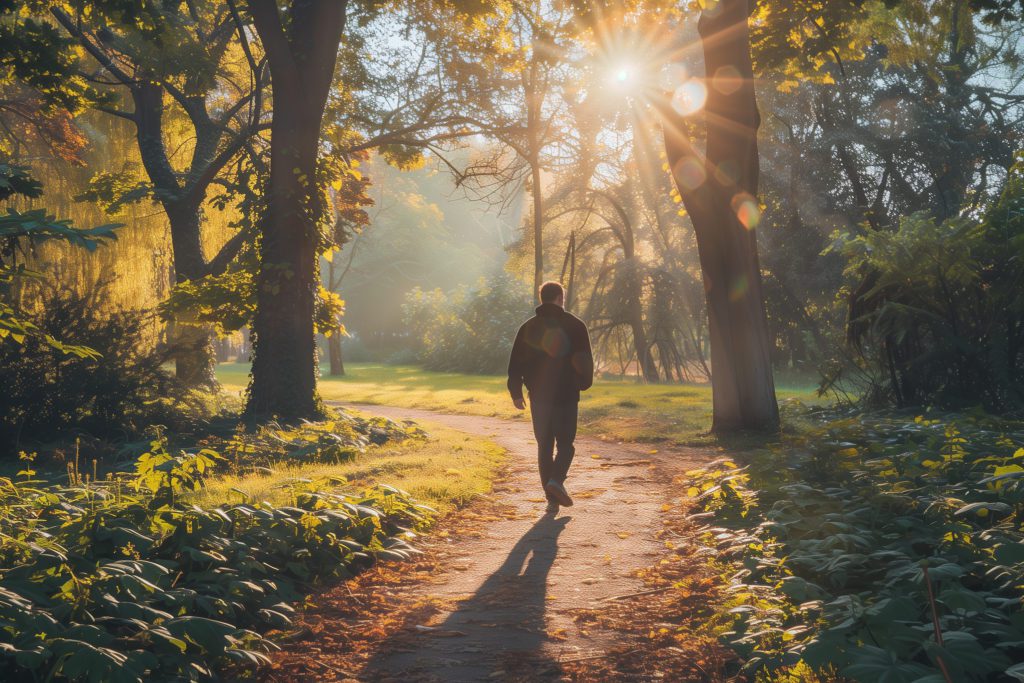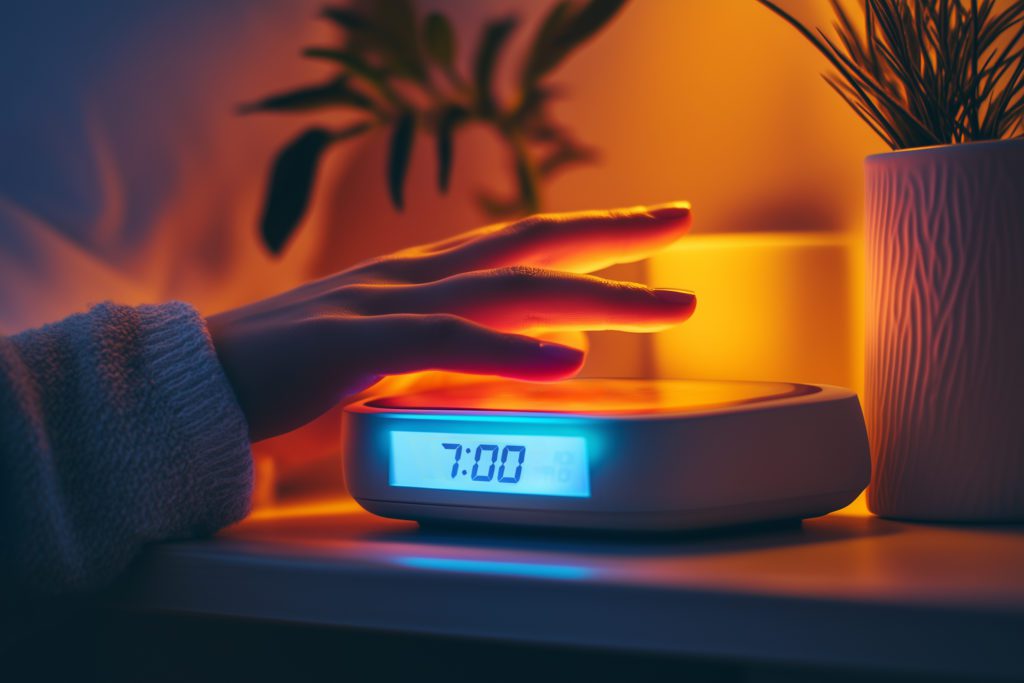
What Makes Someone a Morning Person?
Whether or not someone is a morning person has a lot to do with their genetics. However, even if you are a night owl, you can train yourself to wake up earlier.

Morning persons, or larks as they are sometimes referred to, tend to go to bed early and wake up early while night owls go to bed late and rise later in the morning.
You’ve probably heard the saying “The early bird catches the worm.” There seems to be some truth in that. After all, Richard Branson gets up at 5:45 a.m., Michelle Obama wakes up at 4:30 every morning, and Apple’s CEO Tom Cook rises at 3:45 a.m.! So, is it worth it getting up so early? It might just be. Many studies have shown that early risers are more likely to be more motivated and achieve more academically.
Most people are not early risers. Only 1 out of 4 people in the U.S. wake up early. So, what makes someone a morning person? Is it possible to train yourself to wake up earlier? Here’s what we know.
Your Genes May Play a Role
Research conducted by consumer genetics company 23andMe, best known for their at-home genetics tests, may explain why some people are night owls and others are morning persons. The study, published in the open-access journal Nature Communications, found that at least some of your preference for being a night owl or early riser is likely written in your DNA. Researchers sequenced the genomes of nearly 90,000 people. They identified 15 versions of genes that are linked to wake-up time preferences.
But that's not all. The study also found that people who identified as night owls were two-thirds as likely to have obstructive sleep apnea (OSA). In addition, they were twice as likely to have insomnia.
Morning people were more likely to have a lower body mass index (BMI) than night owls. They were also less likely to be diagnosed with depression. This is not the only study to link mental health with wake-up preferences. Another study, also published in Nature Communications, found that those who wake up early are less likely to be diagnosed with schizophrenia.
How To Be a Morning Person
There’s nothing wrong with being a night owl. There are studies that show that getting up later has its benefits too. But, perhaps you’d like to become a morning person anyway. The good news is that it is possible to alter your sleep schedule with some work. If you are not a morning person by nature, getting up before the sun rises may seem daunting. Fortunately, there are some things you can do to make it easier.
Create a Morning Routine
A new morning routine may help you shift your sleep clock. A morning routine will help regulate your circadian rhythm, letting your body know it’s time to wake up. A morning routine also gives you something to look forward to when you get out of bed. Your morning routine consists of a set of things that you do before you eat breakfast or coffee. It can include things like journaling, stretching or meditation.
Slowly Adjust Your Sleep Schedule
If you are a night owl, you need to shift your circadian rhythm — or 24-hour clock — earlier. To do this, start by waking up a half hour earlier. Then, a couple of days later, shift your wake-up time another half of an hour, and so forth. A slow shift in your sleep schedule is much easier to adjust to compared to simply waking up several hours earlier. Keep in mind that it takes about six weeks to get used to a new sleep schedule.
Tip: Use Pillow’s Smart Wake-Up feature to easily set a new wake-up time.
Seek Out Natural Light in the Morning
Exposure to light stimulates the suprachiasmatic nucleus, which is the area of the brain that generates the body’s circadian rhythm. Bright light helps wake us up in the morning. It also triggers the reduction of melatonin, the hormone that helps regulate the sleep-wake cycle. It’s also the hormone that makes you feel sleepy. So, you want to suppress it in the morning.
Natural light is ideal. So, try leaving your blinds open at night if it’s dark outside so that you naturally wake up with the sun. Also, right after you wake up, take a short walk around the neighborhood. Or, sit out on the porch while you enjoy your cup of joe.
Follow the Same Sleep Schedule
If you want to become a morning person, it's an everyday job. You have to be consistent and stick with the same sleep schedule — even on the weekends. Decide when you will wake up, and then get up at that time without exception. Sleeping in on the weekends simply will not work as it interferes with your circadian rhythm.
Consider a Sunrise Alarm Clock
Natural sunlight is best. But, if you aren’t able to wake up to the sunlight, consider a sunrise alarm clock. These clocks support your natural circadian rhythm. They mimic morning light, which is a pleasant and gentle way to wake up.
Have a Relaxing Bedtime Routine
If you plan on waking up before dawn, then you’ll want to go to bed early — that is if you want to get enough sleep. And, we don’t recommend skimping out on sleep. Creating a bedtime routine will help you wind down and fall asleep easier. That way, you get the sleep you need.
Your bedtime routine may include:
- Turn down the A/C to between 60 and 67° F
- Create a to-do list for tomorrow
- Take a warm bath or shower
- Drink a warm cup of chamomile or valerian root tea
- Read a book or work on a crossword puzzle
- Do your nightly skin-care routine
- Put away your electronics
- Diffuse some lavender oil
- Do some stretching or bedtime yoga
What makes someone a morning person or a night owl is most likely due to genetics. But, even if you tend to stay up until the wee hours of the morning, you can become an early riser. Making the above lifestyle tweaks can make the shift to waking up early easier.

Written by
Emily Mendez
Emily Mendez is a former therapist and mental health author. She is one of the leading voices in mental health. Emily's writing has appeared in eCounseling, SonderMind, and more. Emily is frequently interviewed by Healthline, Fatherly, INSIDER, Family Circle, and other national media for her advice and expert opinion on the latest mental health topics.
Download Pillow
Get help
Press & News
Legal
Connect
X (Twitter)
Company
Copyright © Neybox Digital Ltd.



